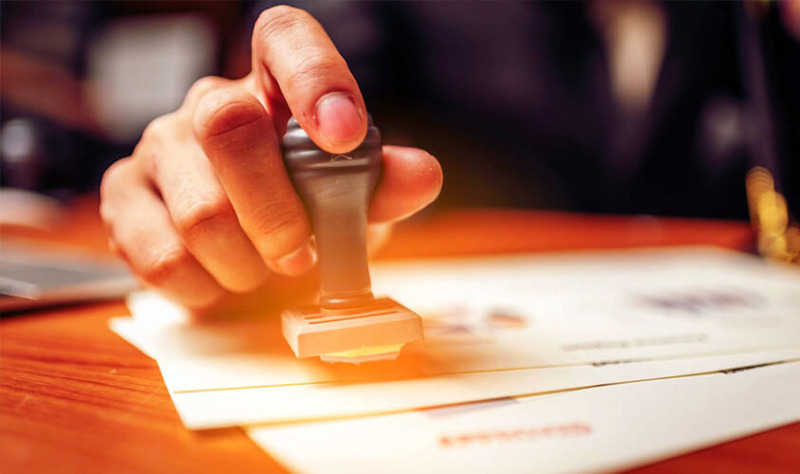The Complete Guide to UK Certificate Attestation for Global Use
Certificate attestation is a crucial process for individuals seeking to use their UK-issued documents in foreign countries. Whether for education, employment, or immigration, understanding how to get your certificates attested is essential. This comprehensive guide will take you through the entire process, ensuring you are well-prepared and informed.
What is Certificate Attestation?
Certificate attestation is a legal procedure that verifies the authenticity of a document. This involves getting a certificate stamped and signed by authorized bodies to confirm its legitimacy. The attestation process is vital for various documents, including:
- Birth Certificates: Verification for family-related legal matters.
- Marriage Certificates: Necessary for spousal visas or legal recognition abroad.
- Educational Certificates: Required by universities or employers to validate qualifications.
- Professional Certificates: Essential for job applications in different countries.
Attestation assures foreign authorities that your document is genuine and can be trusted.
Why is Attestation Important?
Attestation is necessary for several reasons:
- Legal Recognition: Many countries require attested documents for legal purposes, ensuring the information is accurate and trustworthy.
- Employment Opportunities: Employers often request attested educational certificates to confirm qualifications and experience.
- Study Abroad Applications: Universities frequently demand attested documents for admissions and scholarship opportunities.
- Immigration Processes: Immigration authorities may require attested documents to process your visa applications effectively.
Understanding these needs can help you prepare better for your journey.
The Attestation Process in the UK
The attestation process in the UK can be broken down into several clear steps, each vital for successfully completing the procedure.
Step 1: Prepare Your Documents
Before starting the attestation process, gather all the necessary documents you need to attest. Ensure they are original copies and in good condition. Common documents include:
- Academic Certificates: Diplomas, degrees, and transcripts.
- Birth and Marriage Certificates: Official records for personal identification.
- Professional Licenses: Certifications that validate your skills in a particular profession.
Having all your documents organized will streamline the process and prevent delays.
Step 2: Notary Public Verification
The first step in the attestation process is to have your documents verified by a Notary Public. A Notary Public is a legal professional authorized to certify the authenticity of documents.
- Find a Notary Public: Look for a Notary Public in your local area. You can search online or ask for recommendations from friends or colleagues.
- Schedule an Appointment: Contact the Notary Public to set up a meeting. Be prepared to discuss the documents you need to attest.
- Present Your Documents: Bring your original documents along with any required identification, such as a passport or driver’s license.
The Notary Public will review your documents and, if everything is in order, provide you with a notarized certificate.
Step 3: Apostille Service
After notarization, the next step is obtaining an Apostille. An Apostille is an international certification that verifies the document’s origin and is recognized by countries that are part of the Hague Convention.
- Contact the Foreign, Commonwealth & Development Office (FCDO): You can request an Apostille through their official website or by mail. It’s essential to follow their guidelines to ensure a smooth process.
- Submit Your Documents: Include the notarized documents with your Apostille application. Make sure to provide any required information and forms.
- Pay the Fee: There is usually a fee for the Apostille service, typically around £30 per document. Be prepared to make the payment via the accepted methods.
Step 4: Embassy/Consulate Attestation
If you plan to use your documents in a specific country, you may need additional attestation from that country’s embassy or consulate. This step is crucial as it provides further verification of your documents.
- Find the Embassy or Consulate: Locate the appropriate embassy or consulate for the country where you intend to use the documents. Check their official website for specific instructions.
- Submit Your Documents: Present the documents with the Apostille for further verification. Ensure you have all necessary paperwork, including any forms they may require.
- Pay Any Required Fees: Be prepared to pay any fees for this service, which can vary depending on the embassy or consulate.
Step 5: Receive Your Attested Documents
Once all steps are complete, you’ll receive your attested documents. Ensure you check that all details are correct, as any discrepancies can cause issues later.
Common FAQs about Certificate Attestation
1. How Long Does the Attestation Process Take?
The duration of the attestation process can vary based on several factors:
- Type of Document: Some documents may require more time than others to process.
- Notary Public’s Availability: The time it takes to schedule an appointment can affect the overall duration.
- Processing Times at the FCDO and Embassy: Each institution may have different processing times.
Typically, the process can take anywhere from a few days to several weeks, so it’s wise to plan accordingly.
2. What Are the Costs Involved?
Costs can vary widely depending on:
- Notary Public Fees: These can range based on the complexity of the documents.
- Apostille Fees: Approximately £30 per document, but check the FCDO’s website for the latest pricing.
- Embassy/Consulate Fees: Varies by country and service.
It’s best to research and budget accordingly to avoid surprises.
3. Can I Attest Documents Myself?
No, personal attestation is not valid. You must go through authorized professionals for verification to ensure that your documents are recognized internationally.
4. Is Attestation Required for All Countries?
Not all countries require attested documents. Research the specific requirements of the country you are targeting to avoid unnecessary steps.
5. What If My Documents Are in a Foreign Language?
If your documents are not in English, you may need to have them translated by a certified translator before the attestation process. Ensure that the translation is accurate and accompanied by a certification.
Tips for a Smooth Attestation Process
To ensure a hassle-free experience, consider the following tips:
- Plan Ahead: Start the process early to avoid last-minute complications, especially if you have deadlines to meet.
- Keep Copies: Make copies of all documents for your records. This can be helpful in case of loss or damage.
- Check Requirements: Always verify the specific attestation requirements for the country you are dealing with, as these can change.
- Stay Organized: Create a checklist of documents and steps to follow, ensuring you don’t miss anything important.
- Seek Professional Help: If you feel overwhelmed, consider hiring an attestation service to guide you through the process.
Conclusion
Navigating the certificate attestation process can seem daunting, but understanding each step makes it manageable. By following this guide, you will be well-prepared to get your UK documents attested for global use.
Key Takeaways
- Understand the Process: Familiarize yourself with each step involved in attestation.
- Stay Organized: Keep all documents and receipts in order to streamline the process.
- Seek Help if Needed: Don’t hesitate to ask for assistance from professionals if you have questions.
If you have any further inquiries or need assistance, feel free to reach out to attestation services for guidance. Your documents are an essential part of your journey abroad, so ensure they are properly attested!
Final Thoughts
Attestation is not just a bureaucratic step; it’s a key part of your journey towards new opportunities abroad. Whether you are pursuing higher education, seeking employment, or planning to relocate, having your documents attested can make a significant difference. By understanding the process and preparing accordingly, you can navigate this requirement with confidence and ease.
Take the time to gather your documents, verify your needs, and follow the steps outlined in this guide. Your future may depend on it!












